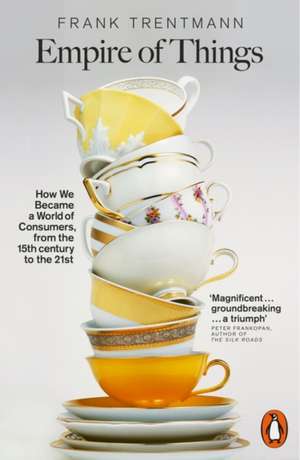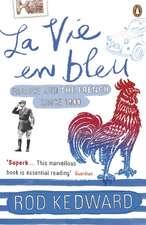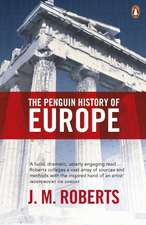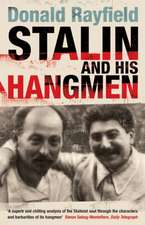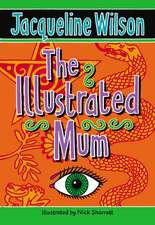Empire of Things: How We Became a World of Consumers, from the Fifteenth Century to the Twenty-First
Autor Frank Trentmannen Limba Engleză Paperback – feb 2017
'A masterpiece, a delight to read ... a rare and beautiful thing' Gerard DeGroot,The Times
What we consume has become the defining feature of our lives: our economies live or die by spending, we are treated more as consumers than workers, and even public services are presented to us as products in a supermarket. In this monumental study, acclaimed historian Frank Trentmann unfolds the extraordinary history that has shaped our material world, from late Ming China, Renaissance Italy and the British empire to the present. Astonishingly wide-ranging and richly detailed,Empire of Thingsexplores how we have come to live with so much more, how this changed the course of history, and the global challenges we face as a result.
'I readEmpire Of Thingswith unflagging fascination ... elegant, adventurous and colourful ... gleefully provocative' John Preston,Daily Mail
'Such a pleasure to read ... From Victorian department stores to modernist kitchens, his book revels in the things that most historians tend to overlook' Dominic Sandbrook,Sunday Times
| Toate formatele și edițiile | Preț | Express |
|---|---|---|
| Paperback (1) | 105.57 lei 22-33 zile | +43.84 lei 6-12 zile |
| Penguin Books – feb 2017 | 105.57 lei 22-33 zile | +43.84 lei 6-12 zile |
| Hardback (1) | 299.38 lei 3-5 săpt. | +57.04 lei 6-12 zile |
| HarperCollins Publishers – 28 mar 2016 | 299.38 lei 3-5 săpt. | +57.04 lei 6-12 zile |
Preț: 105.57 lei
Preț vechi: 123.18 lei
-14% Nou
Puncte Express: 158
Preț estimativ în valută:
20.20€ • 20.96$ • 16.85£
20.20€ • 20.96$ • 16.85£
Carte disponibilă
Livrare economică 07-18 martie
Livrare express 19-25 februarie pentru 53.83 lei
Preluare comenzi: 021 569.72.76
Specificații
ISBN-13: 9780141028743
ISBN-10: 0141028742
Pagini: 880
Dimensiuni: 129 x 198 x 38 mm
Greutate: 0.64 kg
Editura: Penguin Books
Colecția Penguin
Locul publicării:London, United Kingdom
ISBN-10: 0141028742
Pagini: 880
Dimensiuni: 129 x 198 x 38 mm
Greutate: 0.64 kg
Editura: Penguin Books
Colecția Penguin
Locul publicării:London, United Kingdom
Notă biografică
Frank
Trentmann
is
Professor
of
History
at
Birkbeck
College,
University
of
London,
and
directed
the
£5
million
Cultures
of
Consumption
research
programme.
His
last
book,Free
Trade
Nation,
won
the
Whitfield
Prize
for
outstanding
historical
scholarship
and
achievement
from
the
Royal
Historical
Society.
He
was
educated
at
Hamburg
University,
the
LSE
and
at
Harvard,
where
he
received
his
PhD.
In
2014
he
was
Moore
Distinguished
Fellow
at
Caltech.
Recenzii
a
monumental
work
that
deserves
a
wide
audience.
It
isboth
a
highly
engaging
global
history
of
consumer
culture
and
a
masterful
synthesis
of
a
vast
body
of
literature...There
are
few
truly
global
histories
of
consumer
culture,
and
no
study
is
as
meticulous
or
comprehensive.
...
In
sum,
Frank
Trentmann'sEmpire
of
Thingsisa
masterpiece
of
historical
analysis
that
offers
a
wealth
of
insightsinto
material
desire,
changing
social
norms,
state
policies,
transnational
connectivity,
and
other
themes
in
the
history
of
consumption.
Indeed,Empire
of
Thingsis
a
field-defining
work
that
will
surely
be
the
standard
by
which
global
histories
of
consumption
are
measured.
Utterly fascinating ... What makes Trentmann's book such a pleasure to read is not just the wealth of detail or the staggering international range, but the refreshing absence of moaning or moralising about our supposed addiction to owning more stuff
You can't not learn something new here ... [An] epic tale
A history not merely of consumption (and attitudes toward consumption) but also of the very idea of goods as a thing to be produced and consumed. Every page fascinates
I readEmpire Of Thingswith unflagging fascination ... [Trentmann] is not only an elegant, adventurous and colourful writer, he also manages the tricky balancing act of being eminently sensible and gleefully provocative
Laden with fascinating insights and accounts, the result no doubt of extensive research, this study spans not only six centuries and numerous civilisations, cultures and individuals but also finds time to comment on the beginnings, direction and outcomes of consumerism itself. This is a hugely impressive undertaking and an ambitious narrative
A monumental book on a monumental subject ... Rich and illuminating ... No-one who reads it will think about consumer society in the same way
[Empire of Things] is wider in scope geographically, historically and socially than anything preceding it ... The epilogue to this story of consumption is salutary: history is essential to our understanding of the continuing rise in material consumption far beyond a sustainable level
Jam-packed with telling facts and counterintuitive provocations ...Empire of Thingsis that raretour d'horizonthat expands your sense of what should count as the subject ... A bracing argument
Utterly fascinating ... What makes Trentmann's book such a pleasure to read is not just the wealth of detail or the staggering international range, but the refreshing absence of moaning or moralising about our supposed addiction to owning more stuff
You can't not learn something new here ... [An] epic tale
A history not merely of consumption (and attitudes toward consumption) but also of the very idea of goods as a thing to be produced and consumed. Every page fascinates
I readEmpire Of Thingswith unflagging fascination ... [Trentmann] is not only an elegant, adventurous and colourful writer, he also manages the tricky balancing act of being eminently sensible and gleefully provocative
Laden with fascinating insights and accounts, the result no doubt of extensive research, this study spans not only six centuries and numerous civilisations, cultures and individuals but also finds time to comment on the beginnings, direction and outcomes of consumerism itself. This is a hugely impressive undertaking and an ambitious narrative
A monumental book on a monumental subject ... Rich and illuminating ... No-one who reads it will think about consumer society in the same way
[Empire of Things] is wider in scope geographically, historically and socially than anything preceding it ... The epilogue to this story of consumption is salutary: history is essential to our understanding of the continuing rise in material consumption far beyond a sustainable level
Jam-packed with telling facts and counterintuitive provocations ...Empire of Thingsis that raretour d'horizonthat expands your sense of what should count as the subject ... A bracing argument
Textul de pe ultima copertă
What we consume has become a central—perhaps the central—feature of modern life.
Our economies live or die by spending, and we increasingly define ourselves by our possessions. This ever-richer lifestyle has had a profound impact on our planet. How have we come to live with so much stuff, and how has this changed the course of history?
In Empire of Things, Frank Trentmann unfolds the extraordinary story of our modern material world, from Renaissance Italy and late Ming China to today’s global economy. While consumption is often portrayed as a recent American export, this monumental and richly detailed account shows that it is, in fact, a truly international phenomenon with a much longer and more diverse history. Trentmann traces the influence of trade and empire on tastes, as formerly exotic goods like coffee, tobacco, Indian cotton, and Chinese porcelain conquered the world, and explores the growing demand for home furnishings, fashionable clothes, and convenience that transformed private and public life. The nineteenth and twentieth centuries brought department stores, credit cards, and advertising, but also the rise of the ethical shopper, new generational identities, and, eventually, the resurgence of the Asian consumer.
With an eye to the present and future, Trentmann provides a long view on the global challenges of our
relentless pursuit of more—from waste and debt to stress and inequality. A masterpiece of research and storytelling many years in the making, Empire of Things recounts the epic history of the goods that have seduced, enriched, and unsettled our lives over the past six hundred years.
Praise for Empire of Things
“Empire of Things is a masterpiece of historical research . . . a delight to read.”—The Times (UK)
“Empire of Things is something to behold; a compelling account of consumerism that revels in its staggering breadth and depth. Frank Trentmann has written a necessary and important book about one of the defining characteristics of our times.”—Amanda Foreman, author of Georgiana, winner of the Whitbread Prize, and A World on Fire
“Impeccably scholarly, vividly detailed, and delightfully written, Empire of Things is the indispensable starting point for anyone who wants to understand how, in the last half millennium, every effort to restrain consumers has failed, while revolutions in consumption keep piling up stuff and waste.”—Felipe Fernández-Armesto, author of Millennium and Civilizations
“In this magisterial volume, Frank Trentmann takes us through time and across national borders to provide a comprehensive history of how people the world over have come to live with more and more things. Here is the crucial backstory to every consumer exchange.”—Lizabeth Cohen, author of A Consumers’ Republic
“Empire of Things is an extraordinary, Braudelian achievement. It is impossible to imagine that any one person would be able to do a better job than Frank Trentmann.”—John Brewer, author of The Pleasures of the Imagination, winner of the Wolfson History Prize
Our economies live or die by spending, and we increasingly define ourselves by our possessions. This ever-richer lifestyle has had a profound impact on our planet. How have we come to live with so much stuff, and how has this changed the course of history?
In Empire of Things, Frank Trentmann unfolds the extraordinary story of our modern material world, from Renaissance Italy and late Ming China to today’s global economy. While consumption is often portrayed as a recent American export, this monumental and richly detailed account shows that it is, in fact, a truly international phenomenon with a much longer and more diverse history. Trentmann traces the influence of trade and empire on tastes, as formerly exotic goods like coffee, tobacco, Indian cotton, and Chinese porcelain conquered the world, and explores the growing demand for home furnishings, fashionable clothes, and convenience that transformed private and public life. The nineteenth and twentieth centuries brought department stores, credit cards, and advertising, but also the rise of the ethical shopper, new generational identities, and, eventually, the resurgence of the Asian consumer.
With an eye to the present and future, Trentmann provides a long view on the global challenges of our
relentless pursuit of more—from waste and debt to stress and inequality. A masterpiece of research and storytelling many years in the making, Empire of Things recounts the epic history of the goods that have seduced, enriched, and unsettled our lives over the past six hundred years.
Praise for Empire of Things
“Empire of Things is a masterpiece of historical research . . . a delight to read.”—The Times (UK)
“Empire of Things is something to behold; a compelling account of consumerism that revels in its staggering breadth and depth. Frank Trentmann has written a necessary and important book about one of the defining characteristics of our times.”—Amanda Foreman, author of Georgiana, winner of the Whitbread Prize, and A World on Fire
“Impeccably scholarly, vividly detailed, and delightfully written, Empire of Things is the indispensable starting point for anyone who wants to understand how, in the last half millennium, every effort to restrain consumers has failed, while revolutions in consumption keep piling up stuff and waste.”—Felipe Fernández-Armesto, author of Millennium and Civilizations
“In this magisterial volume, Frank Trentmann takes us through time and across national borders to provide a comprehensive history of how people the world over have come to live with more and more things. Here is the crucial backstory to every consumer exchange.”—Lizabeth Cohen, author of A Consumers’ Republic
“Empire of Things is an extraordinary, Braudelian achievement. It is impossible to imagine that any one person would be able to do a better job than Frank Trentmann.”—John Brewer, author of The Pleasures of the Imagination, winner of the Wolfson History Prize
